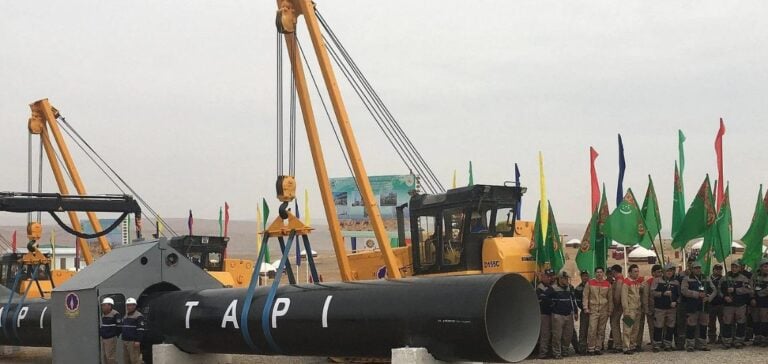Turkmengaz recently completed construction of the 214-kilometer Turkmen section of the Turkmenistan-Afghanistan-Pakistan-India (TAPI) gas pipeline.
This 1,800-kilometer pipeline aims to transport 33 billion cubic meters of natural gas per year, linking the Galkynysh gas field, the second largest in the world, to Fazilka in India, via Afghanistan and Pakistan.
This step marks a crucial milestone in the project, reaffirming Turkmenistan ‘s commitment to becoming a key supplier to South Asian energy markets.
Completion of this Turkmen portion of the pipeline enables Turkmengaz to prepare the transition to work in Afghanistan.
However, securing the Afghan route remains a major concern.
The security context in Afghanistan, combined with political uncertainties, poses significant challenges to the realization of this ambitious project.
Recent discussions between Turkmen Foreign Minister Rashid Meredov and Afghan Deputy Prime Minister Abdul Ghani Baradar have highlighted the importance of bilateral cooperation in overcoming these obstacles.
Security and geopolitical challenges for TAPI
The Afghan route of the TAPI, which passes through unstable areas, represents a point of vulnerability for the entire project.
The Afghan authorities have pledged their support, but the risks remain high, particularly in areas under the influence of the Taliban.
For Turkmengaz, the commitment of local stakeholders is essential to ensure the protection of infrastructure and the continuity of work.
The geopolitical dimension of the TAPI cannot be underestimated.
The energy interdependence between India, Pakistan and Afghanistan brought about by this pipeline is seen as a potential means of stabilizing regional relations.
However, historical tensions between India and Pakistan, as well as the internal situation in Afghanistan, add further complexity to the project.
The Turkmen breakthrough represents an important milestone, but the overall success of the TAPI will largely depend on the ability of regional players to cooperate across political divides.
Economic outlook for the TAPI pipeline
The TAPI project represents a strategic opportunity for the four countries involved.
For Turkmenistan, it means diversifying its gas export markets, reducing its dependence on Russia and China.
Afghanistan, for its part, could see its revenues boosted by transit fees, while benefiting from a stable energy source to support its economic development.
India and Pakistan, faced with a growing demand for energy, would find in the TAPI a partial solution to their growing energy needs.
The success of this project could also encourage other regional initiatives, strengthening economic integration in South and Central Asia.
However, security and financing challenges, as well as complex political dynamics, continue to weigh on the future of the TAPI.
Future work in Afghanistan will be decisive for the continuation of the project, requiring rigorous risk management and close collaboration between the various players involved.






















